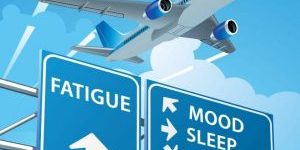Mood & physical activity
Anxiety and fatigue
While the symptoms of anxiety disorders change with the specific diagnosis, the common theme is an overwhelming sense of worry and the associated lack of concentration, feeling tired and irritable.……
Dreaming
There are many theories about dreams including how they occur and what they may mean, if anything. Dreams may not serve any purpose at all and may be merely a……
Is it possible to have too much sleep each night?
It is still largely unknown how many exact hours of sleep per day are needed in adults, according to their age, their environmental and socio-cultural characteristics. It is generally cited……
Building fatigue resilient workplaces
Imagine being able to do everything in your working and personal life without thinking: “I don’t have the energy to do this”? The good news is that you can take……
What are the signs and symptoms of fatigue?
Some of the key signs to look out for are listed below. Drowsiness is an impaired awareness associated with a desire to sleep and signs include:errors in familiar tasksrepeated yawningdifficulty……
Food quality and quantity
The quality and quantity of food you choose can make a huge difference to body weight. The difference between the two diets on the right is 5700kJ. Someone that eats……
Who is responsible for your fatigue?
Fatigue affects everyone, at some time or another!…making US ALL responsible! When someone is fatigued, who is the first person to experience the effects? That’s right…you are! You will experience……
Managing stress and Fatigue
Stress is something that has been with us for a long time. Even though the cause of our stress has changed, the response in the mind and body has remained……
How much sleep do you need?
The amount of sleep that people require varies between individuals depending on many factors. Age is a major determinant of the quantity of sleep. The table below provides a general……
Top 10 sleep tips
Poor sleep habits have often been reinforced over many years. The good news is that there are some common things you can do that will improve your sleep hygiene. Different……










